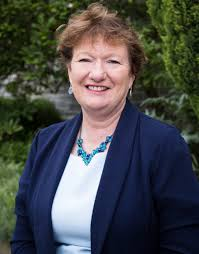Group 4
Comparative Group 4: Professionalisation of Adult Education and Lifelong Learning: a transnational policy perspective
Professionalisation of Adult and Continuing Education and Lifelong Learning, Policies, Stakeholders, Contextual Factors
This study will lead to an understanding about the role of policies in facilitating or hindering professionalisation in the field.
After the group work, the participants will be aware about
1. The current professionalisation status of the field in selected contexts.
2. The way in which policies address professionalisation in selected contexts and the reasons for the same.
3. Role of policies and policy stakeholders in addressing, promoting and/or restricting the professionalisation of the field in selected contexts.
Comparative research question
Primary Question:
How do policy provisions (international, national, regional etc.) support or hinder the professionalisation of adult and continuing education and/or lifelong learning in your context?
Secondary Questions:
1. How do you define professionalisation of the field in your country/context and why (what contextual factors are relevant)?
2. Which policies and their provisions deal with professionalisation of the field and why (what contextual factors are relevant)?
3. Which actors/ stakeholders have a primary say in the policy process (at any stage)? What are their stakes in relation to professionalisation of the field?
Context of comparison
Policies (international, national, regional, local etc. whichever are relevant in your context)
The participants are expected to look upon the policy documents (international, national, regional, local, etc.) relevant in the context (country/region etc.) of their study and find out the provisions relating to the professionalisation of the field. Based on this, the participants can analyse if such provisions contribute or curtail the professionalisation of the field and reflect about the reasons for the same.
Role of Practitioners
1. The practitioner will share data about each category of comparison
2. The practitioner will critically analyse the comparison and analysis by each participant from a practitioner’s point of view during group work.
3. The practitioner, along with the moderator and the co-moderator, will facilitate the discussion and comparative analysis during the group work.
Categories of comparison
1. Definition and aspects/characteristics of professionalisation of the field embedded in a particular context.
2. Policies (international, national, regional) and their relevant provisions dealing with professionalisation of the field in their context.
3. Primary stakeholders and their stakes
4. National/contextual conditions that support/ hinder the professionalisation of the field in a particular context
All categories are descriptive as well as analytical and step by step facilitation for writing transnational essays will be provided during the preparation phase by the moderator and the co-moderator.
References
Egetenmeyer, R., Breitschwerdt, L., and Lechner, R. (2018). From ‘traditional professions’ to ‘new professionalism’: A multilevel perspective for analyzing professionalisation in adult and continuing education, Journal of Adult and Continuing Education, 25(1), p. 7-24.
Mikulec, B. (2018). Normative presumptions of the European Union’s adult education policy, Studies in the Education of Adults, 50(2), p. 133-151.

Prof. Søren Ehlers, Julius-Maximilian University Würzburg, Germany
Dr. Paed. Søren Ehlers is emeritus from Aarhus University, Denmark and Distinguished Professor at the International Institute of Adult and Lifelong Education, India.
His current research areas include: transnational policy formulation, comparative research, employability policies, policy analysis, sustainability, measurement of progression in learning, and knowledge economy.

Co-Moderation: Shalini Singh, Julius-Maximilian University Würzburg, Germany
Shalini Singh is a Senior Research Fellow at the International Institute of Adult and Lifelong Education, India.
Her current research interests include: policy frameworks, comparative research, employability policies, policy analysis, sustainability, measurement of progression in learning, and knowledge economy.

Co-Moderation: Dr. Trudy Corigan, Dublin City University, Ireland
Dr. Trudy Corrigan is an Assistant Professor in the School of Policy and Practice in the Institute of Education, Dublin City University (DCU) Ireland. She was the vice-chair of the Age Friendly University initiative which was developed by DCU as the first age-friendly university in the world. Trudy's research interests are in adult education, lifelong learning and intergenerational learning. She is both a lecturer and researcher on the degree programmes which includes adult education and lifelong learning. She has also developed an intergenerational learning programme within DCU between 2008-2016.


